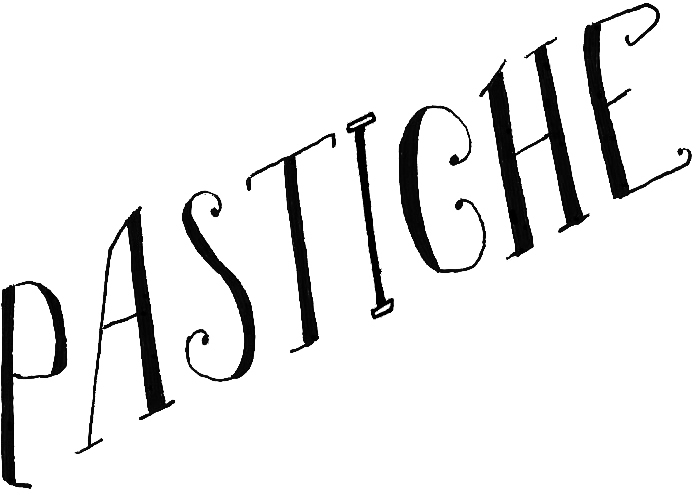Love pies and photosynthesis
A few friends and I were recently having drinks at a favorite spot, and a really compelling conversation about love and relationships emerged (man do I love Happy Hour fueled think-tanks :). One friend said to another (her sister), “Yeah, but you’re always saying that about him. ‘I just care so much about him.’ ‘I really, really care about him.’ But care is like... a TINY piece of the puzzle. It’s great you care about him, but I also care about this bartender. And about most people around me. Caring about someone is not everything.” She then started metaphorically comparing romantic love to a pie, saying that care, for example, might be 5% of the pie? 10%? But should it really be 70 or 80%??
Her sister, at the center of this equation, challenged that claim. She said that she truly cares about very few people, so to her, care does feel like a very large piece of the pie, as well as a very important attribute of a relationship that certainly isn’t a given. She exclaimed that her sister cares about everyone, so of course that would be a less defining characteristic and smaller piece of the pie for her.
This metaphor got all of our respective wheels really turning. I had never actually thought about love in this way before, and my head has been swimming with questions about it. Is love a pie? Is lasting love a different pie? And are people’s love pies different?
We thought about some of the things that come to mind for us—things like trust, physical attraction, respect, compatibility. We could all agree these things were important facets, but we may have differing opinions on just how important each facet is to us.
To complicate things further, I wondered: do you think your love pie is an objective reflection of your interpersonal needs as a human, or a subjective reflection of what you may feel your current relationship is lacking, or what you’re clinging to in your current relationship, or what you value most about your current relationship? I've wondered this about love languages, too. Is quality time, for example, truly your love language, or is it a reflection of what you're lacking and therefore craving most? (PS: take the quiz if you never have before)
A few days later, I was with some other friends, and the topic of young adult romantic relationships (unsurprisingly) came up again—it does seem to dominate many people’s worlds at this age, whether in a relationship or not. We all agreed that most people who’ve been in relationships can recall a time they were in a straight up bad/unhealthy/toxic one (or two), and for most of us, we were intoxicated and even blinded by it in the moment, only able to really "see the light" once out of it. We thought, why do so many smart humans, self-aware humans, get into relationships that for all intents and purposes don’t really make sense? We don’t do that so much with our friendships—it’s something specifically about our romantic relationships, it seems. Are our love pies completely out of whack because of sex and physical attraction? And if so, isn't that a problem for lasting love?
We’re taught from a young age what friendship is and what it means. It’s one of the first things many of us can remember experiencing and naturally, subconsciously “figuring out.” The idea of friendship, in fact, is never really described with much magic. It’s more… recipe-driven, and logical. Friendships, especially lasting ones, simply make sense. You become friends with people you’re compatible with, people who listen to you, people who make you laugh, people you enjoy. You become best friends with those friends whom you have these things the MOST with, and probably other great tidbits, too.
But love—love is different, right? We don’t talk about love like we talk about best friendship. We talk about it like it’s magical, like it can happen at first sight, and like it may not have any rhyme or reason. And we talk about it as an end-game. You want to grow up, and fall in love. And when you fall in love, you get married. And then... I guess it's just supposed to work out from there. I suppose it’s fun (and certainly entertaining—ahem, Disney) to treat love with this sort of magical, special, otherworldly, divine connotation, because we all know there is something different about love than basic friendship.
But is it entirely accurate? Is the way we talk about love, the way we use the word—is it fitting? Is it encompassing enough? Is it specific enough? Does it tell the whole story? Does it tell the right story? I wonder.
I wonder if we need a new word, or a new dialogue. A new paradigm for the entire concept. Kind of like how there are 50 words for ‘snow’ in Eskimo, I’m wondering if we need to expand our paradigm for love and give it all the different varietals it deserves. I think we’ve outgrown the limited definition today, and because of it, we misuse it. We overuse it. It gives people a skewed image of relationships, romance, and marriage, I think. How often, when you read articles or books or hear people talk about the secrets to their decades-long relationships or successful marriages, do they attribute it to love? Maybe besides Ina and Jeffrey—it’s seemingly rare. So if nothing else, it should give cause to stop and think for a moment, why is love the number one thing the world (even if subconscious) seems to emphasize when you’re searching for a forever-someone?
To me, love is amazing, and love is certainly real. And sometimes, it can be spontaneous combustion; ex nihilo, even. But it can also be created, and it can come as a result of other things, and a result that is greater than the sum of its parts. It can be an end product, like photosynthesis resulting in oxygen. The end product is something new, something incredible that feels magical, but it didn’t appear out of thin air. It has depth, it has matter, and it took a lot to get there—work, even. I sort of like the idea of choosing people, both friends and romantic partners, with whom the prospect of photosynthesis feels both possible and exciting. It just seems like really, really magical things can happen when you have a foundation like that between you, even in a crazy world of constantly moving parts.
Note from the editor (lol, me): I wrote this a couple of months ago, and even in the little amount of time that has passed, I already have new thoughts, new questions, maybe even new conclusions. Is that why love is so dang difficult to figure out? Again, we need more words for it. PS: I have another piece that I'm hashing out about the idea of soulmates. And spoiler, it will be riddled with humor and/or my typical amount of doubt and questioning so don't run for the hills if the word soulmates completely weirds you out :)

